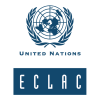Executive Summary
The Executive Secretariat of Council of Finance Ministers of Central America, Panama, and the Dominican Republic (Spanish acronym: COSEFIN) and the Economic Commission for Latin America and the Caribbean (ECLAC) are co-executing this project with financing from the Swiss Agency for Development and Cooperation (SDC) in Central America. Seven Ministers of Finance and three Ministers or Secretaries of Planning responsible for the National Public Investment Systems (Spanish acronym: SNIP) are key partners for the project with responsibilities in its technical governance.
Background
Climate change is magnifying the socioeconomic vulnerabilities of the region and has increasingly affected the economic evolution of productive activities such as agriculture, hydroelectric generation, the well-being and health of its inhabitants and ecosystems, generating fiscal contingencies that, when they materialize They have put pressure on the weak public finances of developing countries, particularly countries like the Central American Integration System (spanish acronym: SICA) region, one of the most exposed and vulnerable to the adverse effects of natural hazards and climate change.
Public investment is an instrument of strategic public and fiscal policy in developing countries, due to the multiplier effect on productive activities, by the generation of direct jobs, incentives for private investment, stimulator of domestic demand, and creator of the conditions for the development of other productive activities, human mobility, goods and capital, and access of the population to goods and services. National public investment systems guidelines can incentivize sustainable and inclusive solutions, gray and green infrastructures, and other nature-based ones that restore ecosystems, reduce disaster risks, and promote sustainable and inclusive adaptation to climate change. For this reason, the formulation and evaluation of public investment projects would benefit from the inclusion of analysis and measures for disaster risk reduction, as well as the inclusive response to climate change that guarantees the sustainability of such investments from the stage from design to long-term operation and maintenance.
Impact (Overall objective)
Contribute to disaster loss and damage reduction and to the climate emergency response by including disaster risk reduction and sustainable and inclusive adaptation to climate change in the life cycle of public investment projects, conserving and improving the services provided to the population of the member countries of COSEFIN / SICA.
Effects (Project objectives)
A.- National public investment systems in SICA countries improve and implement disaster risk reduction and sustainable and inclusive adaptation to climate change instruments in the life cycle of public investment projects.
Products
A 1) Public national and regional technicians trained to integrate disaster risk reduction and sustainable and inclusive adaptation to climate change into the life cycle of public investment projects.
A 2) Updated and improved methodological guides, policies and national technical standards for application in the life cycle of public and private investment projects (from the design stage).
A 3) Pilot public investment projects executed with the application of the new disaster risk reduction and sustainable and inclusive adaptation to climate change instruments..
A 4) Geographic information system platform disaster risk reduction and sustainable and inclusive adaptation to climate change prototype for public investment designed and operational in selected countries of the region, adapted according to the needs of each country.
B.- COSEFIN and other key regional actors strengthen their technical capacities and implement the regional agenda in support of the integration of disaster risk reduction and sustainable and inclusive adaptation to climate change in public investment in SICA countries.
Products
B 1) Regional guides and regulations developed in the framework of cooperation between COSEFIN and other approved SICA secretaries.
B 2) Exchanges of experiences and good practices in the integration of disaster risk reduction and sustainable and inclusive adaptation to climate change into the public investment project cycle established to promote the escalation of good practices and instruments generated by the project.
B 3) Geographic Information System disaster risk reduction and sustainable and inclusive adaptation to climate change prototype for public investment designed and operational in COSEFIN and other related regional entities.
C.- Ministries of Finance with other key national and regional institutions move forward with the integration of disaster risk reduction and sustainable and inclusive adaptation to climate change in fiscal policies and instruments, insurance, budgeting, and financing-related mechanisms (Counterpart financing to be determined).
Products
C 1) Fiscal policy options that facilitate disaster risk reduction and sustainable and inclusive adaptation to climate change, including technical analysis, guides, instrument proposals, processes with technical teams, trainings, seminars, workshops, meetings, south-south cooperation, and participation in regional and international strategic events (Counterpart financing to be determined).



